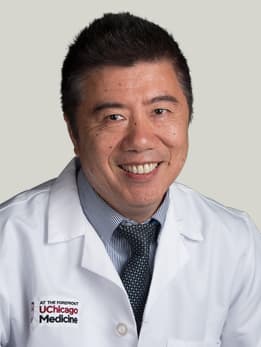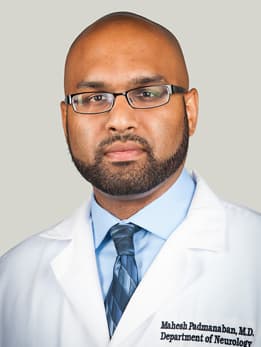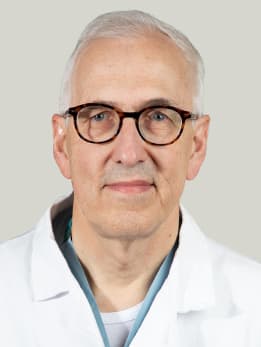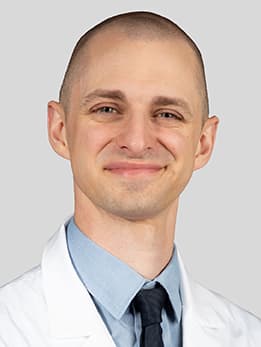Parkinson's Disease and Movement Disorders
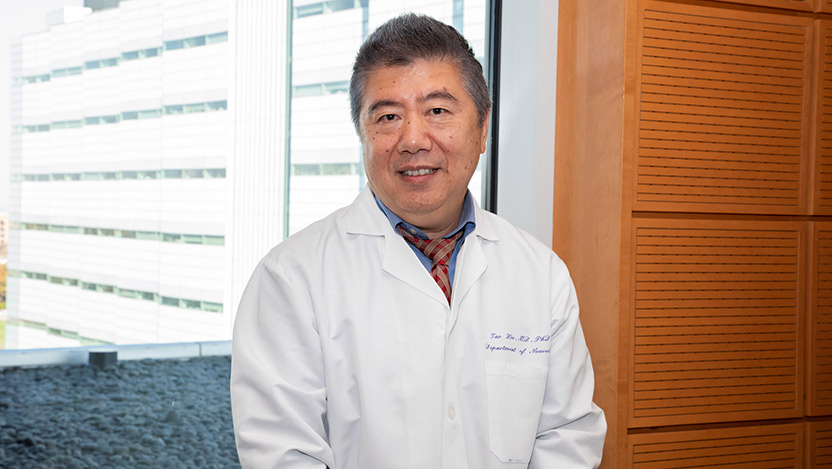
Parkinson's Disease and Movement Disorder Program
At the University of Chicago Medicine Parkinson’s Disease and Movement Disorder Program, our expert team understand that effective care is customized to the unique symptoms and needs of each patient. We specialize in the treatment and management of complicated and rare movement disorders, as well as symptoms of progressive neurodegenerative diseases. Our movement disorder specialists strive to provide high-quality care, state-of-the-art research and the latest education for patients with Parkinson’s disease, tremor and other movement disorders.
Conditions We Treat:
- Ataxia
- Blepharospasm
- Chorea
- Cortical basal degeneration
- Dystonia
- Dyskinesias
- Essential tremor
- Hemifacial spasm
- Huntington's disease
- Multiple system atrophy
- Myoclonus
- Parkinson's disease
- Parkinsonian syndrome
- Progressive supranuclear palsy (PSP)
- Tics
- Tourette syndrome
- Rett syndrome
- Wilson's disease
Parkinson's Disease Symptoms
Parkinson’s disease is a degenerative disease of the nervous system that causes impaired or involuntary movements and can affect behavior, mood and other non-motor functions of the body. Parkinson's disease is a progressive disease, meaning it worsens over time. Diagnosis usually occurs after age 55, though early onset at a younger age is also possible.
Parkinson's disease is caused by the progressive loss of a certain type of neuron cells in the brain. This results in a shortage of the chemical messenger called dopamine, which is important for controlling the body’s motor functions.
- Tremor, most commonly starting in the hands but can also occur in the tongue, jaw and legs
- Stiff or rigid muscles (spasticity)
- Slow movement (bradykinesia)
- Decreased vocal volume
- Lack of facial expression
- Abnormally small handwriting (micrographia)
- Shuffling gait (an impaired walk, as if the feet are stuck to the floor)
- Decreased arm movement when walking
- Difficulty with balance, posture or gait, which may result in falls
PD symptoms can often be controlled with medication alone, or with a combination of medication and surgical intervention, such as deep brain stimulation (DBS), for patients who meet certain criteria. The extent to which symptoms can be reduced depends on each patient’s individual circumstances. At UChicago Medicine, our goal is to improve symptoms so our patients can enjoy the highest possible quality of life.
Essential Tremor Symptoms
Essential tremor, also known as benign familial tremor, is the most common movement disorder. Characterized by uncontrollable shaking, essential tremor progresses slowly. It is distinctly different from Parkinson’s disease, although commonly misdiagnosed. Some patients may have essential tremor and Parkinson's disease.
- Difficulty with precise tasks (threading a needle)
- Excessive shaking in hands
- Inability to dress or feed yourself
- Shaking in tongue
- Shaking in arms
- Tremor in voice
- Tremor in neck
Treatment plans for essential tremor may involve medication, surgery or a combination of both. Initial treatment often includes propranolol or primidone, which are medications that have proven effective in about half of patients. Deep brain stimulation (DBS) surgery is a highly effective treatment option for patients who are eligible candidates.
Why Choose UChicago Medicine for Parkinson’s Disease and Movement Disorders Treatment?
- UChicago Medicine is an Information and Referral Center of the American Parkinson Disease Association (APDA) and a Center of Care for CurePSP.
- Our physicians are experts in deep brain stimulation (DBS) surgery and actively research and develop techniques to enhance the effectiveness of DBS surgery.
- We are one of the only hospitals in the region with an intraoperative CT scanner and the first hospital in the Chicagoland area to use the new Percept PC DBS system.
Parkinson’s Disease Information and Referral Center
UChicago Medicine is honored to be recognized as an American Parkinson Disease Association (APDA) Information & Referral Center.
Thanks to the support from APDA, an APDA Information & Referral (I&R) Coordinator is dedicated to supporting the local Parkinson’s disease (PD) community through the creation of educational and support programs, by providing advice and connections to the necessary local health care experts, disseminating reliable Parkinson's disease resources, and much more.
Having an APDA I&R Coordinator at UChicago Medicine enables us to offer specialized care and supportive services to those facing a Parkinson's disease diagnosis, thereby helping everyone impacted by PD live life to the fullest.
Our APDA I&R Coordinator Nicole Reidy can be reached at 773-834-1688 and apdail@apdaparkinson.org.
You can find more information about Parkinson’s disease, resources, and events on www.apdaparkinson.org/il.
Living with Parkinson’s disease goes beyond a diagnosis. The Information and Referral Center is a resource for patients, loved ones and health care providers. We want to help patients throughout their treatment, but also, to connect them to a supportive local and national APDA community.
APDA Support Groups
For questions or to sign up for a group, contact Nicole Reidy at 1-773-834-1688 or nicole.reidy@uchicagomedicine.org.
What: This group combines education, enrichment and exercise for those who have Parkinson’s disease. The exercise sessions include dance, yoga, physical therapy and rock steady boxing led by licensed professionals. The educational sessions include a variety of speakers including neurologists Dr. Xie and Dr. Padmanaban, a physical therapist, a speech/swallow therapist and a nutritionist.
When: The first and third Monday of each month from 12:00 p.m. – 1:00 p.m. CST.
Where: Zoom
What: This group is for individuals diagnosed with Parkinson’s disease along with their care partner.
When: The fourth Tuesday of each month from 11:00 a.m. – 12:00 p.m. CST.
Where: Zoom
What: PRESS™ is an eight-week closed group for those newly diagnosed with Parkinson’s disease within the past five years along with their care partner. This group provides education, support and a clear understanding of ways to plan and care for yourself throughout your diagnosis.
When: Bi-yearly and registration is required
Where: Zoom

